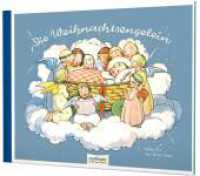- ホーム
- > 洋書
- > 英文書
- > History / World
Full Description
Memory is not an inert container but a dynamic process. It can be structured by ritual, constrained by textual genre, and shaped by communities' expectations and reception. Urging a particular view of the past on readers is a complex rhetorical act. The collective reception of portrayals of the past often carries weighty implications for the present and future. The essays collected in this volume investigate various aspects of memory in medieval China (ca. 100-900 CE) as performed in various genres of writing, from poetry to anecdotes, from history to tomb epitaphs. They illuminate ways in which the memory of individual persons, events, dynasties, and literary styles was constructed and revised through processes of writing and reading. Contributors include: Sarah M. Allen, Robert Ashmore, Robert Ford Campany, Jack W. Chen, Alexei Ditter, Meow Hui Goh, Christopher M. B. Nugent, Xiaofei Tian, Wendy Swartz, Ping Wang.
Contents
ContentsContributorsIntroductionRobert Ford Campany and Wendy Swartz1 Artful Remembrance: Reading, Writing, and Reconstructing the Fallen State in Lu Ji's "Bian wang"Meow Hui Goh2 Intertextuality and Cultural Memory in Early Medieval China: Jiang Yan's Imitations of Nearly Lost and Lost WritersWendy Swartz3 On Mourning and Sincerity in the Li jiand the Shishuo xinyuJack W. Chen4 "Making Friends with the Men of the Past": Literati Identity and Literary Remembering in Early Medieval ChinaPing Wang5 Yu Xin's "Memory Palace": Writing Trauma and Violence in Early Medieval Chinese Aulic PoetryXiaofei Tian6 Structured Gaps: The Qianzi wen and Its Paratexts as MnemotechnicsChristopher M.B. Nugent7 Genre and the Construction of Memory: A Case Study of Quan Deyu's (759-818) Funerary Writings for Zhang Jian (744-804)Alexei Ditter8 Figments of Memory: "Xu Yunfeng" and the Invention of a Historical MomentSarah M. Allen9 The Mastering Voice: Text and Aurality in the Ninth-century MediascapeRobert AshmoreIndex







